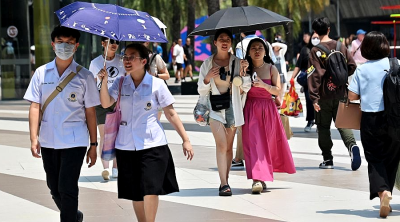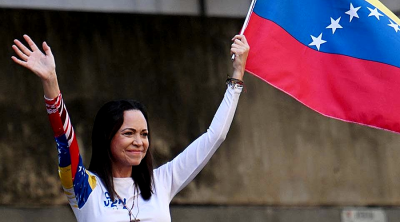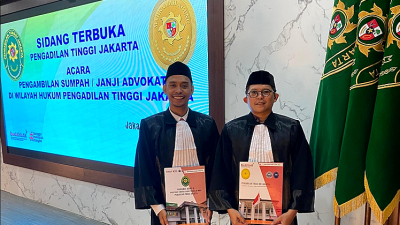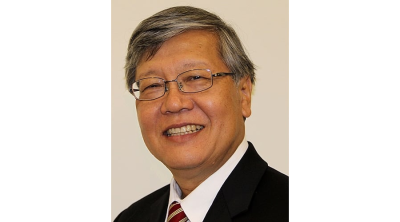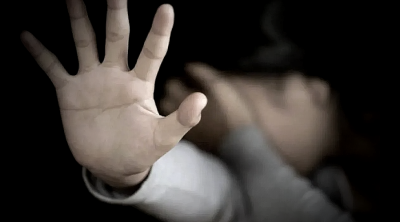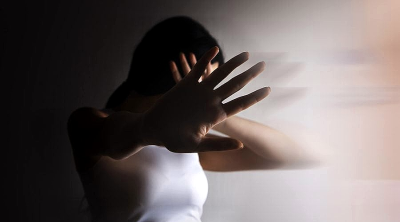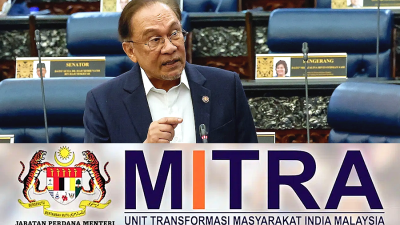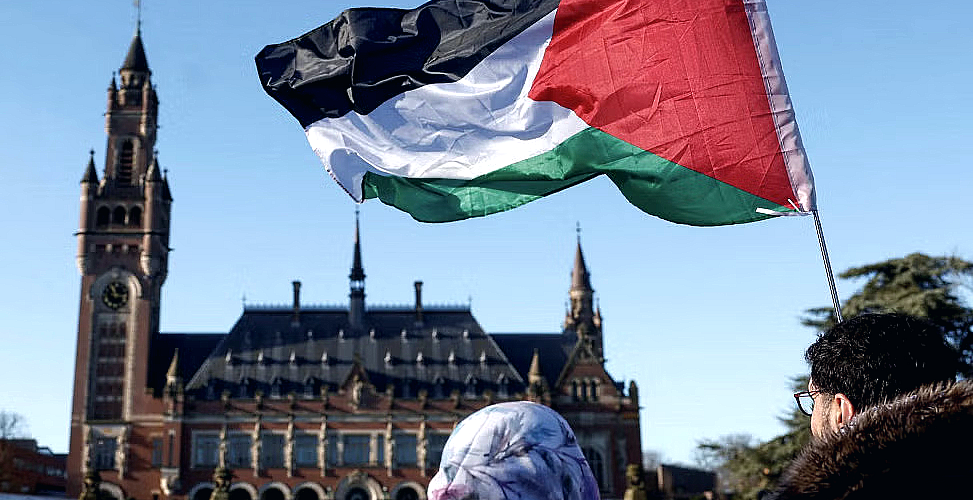
When Israel’s onslaught on the Gaza Strip began and continued to become more and more violent as it butchered thousands of Palestinians as retribution for Hamas’ October 7 attack, the word “ceasefire” became a contentious one amongst Israel’s allies.
Even as the majority of the world voted at the UN General Assembly in December for an immediate ceasefire, and humanitarian organisations and protesters from across the world echoed this call, the US and UK insisted on opting for the more feeble term of “humanitarian pause” instead.
It seems there is no end to the unwavering support for Israel from its closest friends, just as there is no end to Israel’s appetite for violence, with the most recent death toll in Gaza surpassing 26,000 people.
Against this backdrop, the failure of the International Court of Justice (ICJ) to call for a ceasefire in its order of January 26, 2024 can seem disappointing.
In the case brought against Israel by South Africa for violating the Genocide Convention, out of the nine provisional measures that South Africa requested, the first was that Israel should immediately suspend its military operations.
Although the ICJ did not include this, a closer reading of its statements makes it clear that the court has taken a much stronger stance than Israel and its allies would have liked.
In the order, the court referred to statements from UN agencies and officials to acknowledge the bombardment of civilians in Gaza, even in places that were designated as safe zones, attacks on medical facilities, the critical condition of the health system in Gaza and an unfolding public health disaster, lack of sanitation, the traumatisation of an entire generation of Palestinian children, and an extreme deprivation of food causing extreme hunger.
It also noted that the Palestinian people are facing their largest displacement since 1948, and that those displaced are in inhumane conditions and facing destitution.
Furthermore, it took note of the dehumanising language used by Israeli officials when speaking of the people of Gaza, and argued that there is sufficient evidence to “conclude that at least some of the rights claimed by South Africa and for which it is seeking protection are plausible”.
It is important to remember that the process of justice at the ICJ can be a long one, and at this stage, it is not for the court to rule on whether Israel is committing genocide or even to confirm jurisdiction, but to only confirm that the conditions exist for the awarding of provisional measures needed to prevent irreparable harm.
The fact that considerable space was dedicated to creating an official record of the atrocities being committed against the Palestinian people is important, especially since Israel’s propaganda machine, with the help of Western allies, has been working overtime to convince the world that Israel is simply “defending itself.”
In broad terms, the ICJ’s provisional measures require Israel to prevent acts that constitute as genocide, prevent and punish incitement to commit genocide, provide urgent humanitarian assistance in Gaza, preserve evidence related to allegations of genocide, and report back to the ICJ within a month.
There is a clear emphasis on the responsibility of the Israeli state for the actions of its military, and for ensuring humanitarian assistance, thus rejecting its attempts to blame the crisis on UN mismanagement.
It is obvious that Israel will reject these responsibilities; in fact, it has already accused the court of bias.
The main question now is to what extent the ICJ order will create pressure on Israel’s allies.
Will nations like the US and UK, which provide weapons and other military assistance to Israel, take steps regarding their complicity in facilitating this genocide?
If the countries that have paid so much lip service to the importance of an international, rules-based order, especially in the wake of the Russian invasion of Ukraine, blatantly disregard said rules, what will that mean for their credibility and influence on the global stage?
Previously, similar rulings against Myanmar, Russia and Syria have been backed by most Western governments.
Yet, almost immediately after this particular ruling, at least nine countries, including the US, UK and Germany, decided to pause funding to the UN’s agency for Palestinian refugees over allegations that 12 of their staff might have been involved in Hamas’ October 7 attack.
Given that the UNRWA has thousands of workers and supports more than 5.6 million Palestinians, suspending their funding in the midst of a humanitarian crisis seems more like collective punishment than a reasonable response.
At such a critical moment, when we are waiting to see if some of the world’s most powerful nations will respect the authority of the international justice system when it is an ally and not an enemy in the docks, it is deeply concerning that they would choose to express this lack of trust in the UN instead of getting behind its apex court.
Israel’s allies, particularly the US, will now be under even more scrutiny over double standards when it comes to international human rights and justice.
If the US uses its veto power in Israel’s favour during Wednesday’s Security Council meeting on the ICJ ruling, it would effectively be arguing for the selective application of international humanitarian law, and permanently discredit the idea of a global system where warfare has to be conducted within certain rules that apply to all nations equally.
This is a dangerous thing to do, particularly now that the situation in the Middle East is continuing to escalate, with the most recent drone attacks on the Jordan-Syria border, which killed three US servicemen and injured 34 others, taking us one step closer to a direct US-Iran conflict.
Of course, that is not to say that the US holds international law in high regard anyway.
The UN’s declaration of the invasion of Iraq as an illegal war ultimately made no difference, and the US is still not party to the Rome Statute that founded the International Criminal Court.
Nevertheless, given the amount of hand-wringing it has recently done over Russia’s disregard for state sovereignty and international law, for it to now make light of the ICJ ruling would undoubtedly expose its glaring hypocrisy, undermine its support for Ukraine and damage diplomatic relationships with countries in the global South.
Now is also a good time to remember that the UN and its organs, including the ICJ, are products of the World Wars, created at a time when the world was tired of bloodshed and intent on creating some sort of global order that would prevent such atrocities from occurring again.
Regardless of how flawed these institutions are, they reflect a certain acceptance of a universal standard of human rights, and a shift away from the politics of brute force and power.
The US and its allies, with its dead set support for Israel, are now not only putting their reputations on the line; they are running the risk of making these institutions obsolete and threatening the entire post-1945 international order.
Whatever steps they take next will signal whether they are still committed to modern diplomacy, or are willing to trade it in for a “survival of the fittest” situation instead—one that will ultimately divide the West, and weaken the global credibility of countries like the US.
ADVERTISEMENT
ADVERTISEMENT








